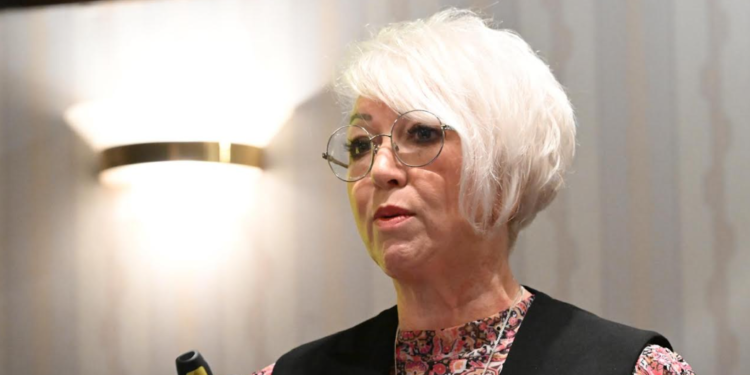Advice firms are being warned they must engage with the Financial Conduct Authority’s (FCA) Consumer Duty board reports and ensure their leaders are able to approve the required documents by the 31 July deadline.
Nikki Bennett, managing director of UKGI compliance, raised concerns that not enough firms were moving quickly enough to complete the process and was unsure whether the FCA had the capacity to make sense of these reports once they are in.
However, she also highlighted it was not a problem for firms to have red or amber markers on their reports, and that it was better to break a rule, not a princple.
Speaking at the Association of Medical Insurers and Intermediaries (AMII) Spring Health and Wellbeing Summit and AGM, Bennett said: “We had 43% of firms on a recent seminar I attended who have still yet to engage with what that format is going to look like.
“So 31 July is the deadline for the board actually having seen and approved the Consumer Duty report.
“It is driven by the introduction of a new principle – principle 12 – which is all about delivering good outcomes for retail customers,” Bennett continued.
“Now, we’ve got 70 days left – we’ve got 50 working days left. And that’s to the point of approval.”
FCA guidance makes clear this principle reflects a general expectation by the regulator that firms should conduct their business to a standard which ensures an appropriate level of protection for retail customers.
It also imposes obligations on firms towards retail customers of products irrespective of whether the customer is a client of the firm.
But Bennett warned: “This is not an attestation. This is an actual report. It takes time to collate and time to pull together.
“It’s important to be proportionate, don’t present the board at the last minute with hundreds and hundreds of pages of data – they will lose the will to live.
“They’re not going to be able to see the wood from the trees and be able to then demonstrate that they’ve done something meaningful in the way of challenge.
“It is their names at the end of this report that says, I approve; I approve of where we’ve got to, I approve of how far we’ve gotten embedding good outcomes for customers.”
Green vs red
Meanwhile, firms should not be overly concerned about producing a report that shows that everything is going well.
Bennett said: “If you’re expecting to produce a green report and everything is hunky-dory – somebody somewhere is fibbing.
“You’ve either been absolutely exceptional or there’s a nervousness around how it’s going to be perceived.
“Red is okay. Amber is okay.
“Make sure as well that the information is presented in such a way that they can challenge.“
And if you are going to make a mistake, it’s better to break a rule than to breach a principle, Bennett continued.
“My advice is if you’re going to make a mistake just break a rule, don’t breach a principle. If you breach a principle, there’s something much more fundamental going wrong with the business,” she said.
But the report is not only about improving service for customers overall, but also particularly about how vulnerable customers are treated, Bennett pointed out.
“I think the expectation is the Consumer Duty aspect will drive and improve a better culture, which ultimately will drive and improve better outcomes for customers.
“But equally the FCA is still majorly concerned about vulnerable customers and how people are able to evidence that they are achieving good outcomes, and they equally are able to recognise, identify and take appropriate action where vulnerability is identified.
“There is lots of stuff out there that will support really strong fair value assessments, but I think we’re not doing enough and maybe we’re not sharing enough information.”
Good luck to them
Noting that the FCA is not stating what the reports need to look like, Bennet explained it allows for companies to utilise their own style for the reports and that could mean difficulties for the FCA.
“The FCA is going to ask to see these reports, and this is going to be one of the most interesting data gathering exercises that they’ve ever done,” she added.
“How on Earth they are going to collate, make sense of trends and diagnose off the back of a whole load of us ‘doing us’ is going to be really interesting.
“So I don’t I don’t know what they’re going to do with that, but good luck to them.”






